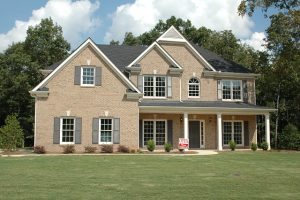Eligibility To Buy Executive Condominium
Eligibility-to-Buy Executive Condominium: A Comprehensive Analysis
Introduction
Executive condominiums (ECs) serve as a bridge between public housing and private property in Singapore, catering to the middle-income group. This article delves into the eligibility criteria for purchasing an EC, its historical context, significance, and how it fits within the broader housing landscape of Singapore. We will explore its impact on the economy, the role of technology, the regulatory framework, the challenges it faces, and its future prospects. Through a series of case studies, we will illustrate its practical application and provide insights into the trends that are shaping its trajectory globally.
Understanding Eligibility-to-Buy Executive Condominium
An executive condominium is a form of housing in Singapore designed for middle-income families. It offers a nine-year exclusivity period where only Singapore citizens can buy these units before they become open to all. The eligibility criteria for purchasing an EC are stringent and are determined by the Housing & Development Board (HDB) and the Central Executive Yard (CEXY). These criteria include income limits, citizen status, and existing housing ownership.
Historically, ECs were introduced in 1994 to address the housing needs of upgrading families who outgrew their HDB flats but may not yet afford private property. Over the years, the eligibility criteria have been adjusted to ensure that ECs remain accessible to the target demographic while maintaining a stable housing market.
Global Impact and Trends
The concept of executive condominiums is not unique to Singapore; similar models exist in various forms across the globe. The trends in global housing markets, economic policies, and urban development influence the evolution of ECs. For instance, the rise of smart cities and sustainable living has led to advancements in technology that are increasingly integrated into ECs.
In regions with high demand for affordable housing, such as India and China, EC-like models are being explored to cater to the growing middle class. The global financial crisis of 2008 also highlighted the importance of stable housing policies as a buffer against economic volatility.
Economic Considerations
ECs play a vital role in Singapore’s economy by providing an affordable housing option that supports the aspirations of the middle class. This segment of the population is crucial for economic stability and growth, as they form a significant portion of the workforce and are key consumers. The sale of ECs contributes to the nation’s GDP, employment, and industry growth, particularly in sectors like construction and real estate services.
Investment patterns in the property market are influenced by the availability and affordability of ECs. They provide a stepping stone for families to accumulate wealth through property appreciation over time. The economic impact is further magnified when considering the cascading effects on related industries such as furniture, home improvement, and financial services.
Technological Advancements
Technology has revolutionized the real estate industry, with smart homes becoming increasingly common. ECs in Singapore are equipped with smart features that improve energy efficiency, security, and convenience for residents. The integration of IoT (Internet of Things) devices and AI (Artificial Intelligence) systems in these condominiums is a testament to the country’s commitment to innovation and sustainability.
Future advancements may include the widespread adoption of renewable energy sources, predictive maintenance, and enhanced community living experiences through digital platforms. The potential for technological integration in ECs is vast, offering both cost savings and improved quality of life for residents.
Policy and Regulation
The policies and regulations governing ECs are intricate and are designed to ensure a stable housing market. The eligibility criteria are tightly controlled, with measures in place to prevent speculative buying and to promote sustainable development. The resale levy and the minimum occupation period are examples of such measures.
Legislation also dictates the standards for construction, environmental sustainability, and consumer protection within ECs. These regulations ensure that ECs meet the needs of residents while maintaining fairness and transparency in the market.
Challenges and Criticisms
One of the primary challenges faced by ECs is ensuring that they remain accessible to the middle-income group without compromising quality. There is also criticism regarding the potential for speculative buying, which can lead to price volatility and affordability issues.
To address these concerns, policymakers must continuously review and update eligibility criteria and regulations to adapt to changing market dynamics. Measures such as the Additional Buyer’s Stamp Duty (ABSD) and Loan-to-Value (LTV) limits are tools used to maintain a healthy balance in the property market.
Case Studies
Several EC projects have been successfully implemented in Singapore, serving as homes for thousands of families. One such case study is the Waterway Crest, which offers a vibrant living environment with a wide range of amenities and facilities. Another example is the Parc Canberra, designed with multi-generational living in mind, offering amenities that cater to the needs of different age groups within the same family.
These case studies demonstrate how ECs can be tailored to meet diverse lifestyles while maintaining affordability and accessibility for the intended demographic.
Conclusion
The eligibility criteria for purchasing an executive condominium in Singapore are a cornerstone of the country’s housing policy, designed to support the middle-income group and maintain a stable and sustainable property market. The integration of technology, adherence to stringent regulations, and responsiveness to market dynamics are critical components of the EC model’s success.
As Singapore continues to evolve its housing policies to meet the needs of future generations, the EC will undoubtedly remain a vital part of the nation’s social and economic landscape. The global interest in similar models underscores the relevance of this approach to affordable housing. With a careful balance of policy, innovation, and sustainability, ECs can continue to offer an enviable quality of life for their residents while contributing positively to the economy.

Unraveling Executive Condo Leasehold vs Freehold Ownership: Eligibility Guide
In Singapore, prospective homeowners should understand the key difference between executive condo leasehold (99-year government-subsidized lease from HDB) and freehold…

Guide to Buying Executive Condos in Singapore: Eligibility & Steps
Understanding eligibility is crucial before purchasing an executive condominium in Singapore. Citizens or Permanent Residents without other properties can apply,…

Discover Green Living: Navigating Executive Condos and Their Benefits
Executive condominiums (Execs) are premium housing options tailored for high-income earners, offering flexible buying criteria and exclusive amenities. With specific…

Executive Condo Resale Market: Eligibility, Trends, & Success Stories
Executive Condos (ExecCondos) in Singapore offer premium housing for high-income professionals, distinguished by larger floor plans and exclusive access based…

Navigating Eligibility: Buy Executive Condo at Punggol
Executive Condos in Singapore, aimed at professionals, have specific government eligibility criteria including occupation, income (with minimum monthly thresholds), and…

Unlocking Yio Chu Kang: Your Guide to Buying an Executive Condo
The Housing & Development Board (HDB) strictly regulates buying Executive Condos (ExecCondos) in Singapore, ensuring affordability and stability. To qualify,…

Explore Executive Condos: Unlocking Rental Benefits & Eligibility
Understanding eligibility requirements is key when considering renting or buying an executive condominium. These vary by location and property, including…

Unraveling Executive Condos: Eligibility Secrets for Aspiring Buyers
Executive Condos (ECs) provide an exclusive housing choice for high-income professionals in prime city locations, offering luxurious amenities and modern…

Unlocking Home Ownership: Navigating Executive Condo Loan Eligibility
Understanding eligibility criteria for purchasing an Executive Condominium is crucial for achieving homeownership. This includes financial assessments, credit history reviews,…

Singapore 2021: Navigating Eligibility & Benefits of Executive Condos
Executive Condos in Singapore offer high-end living at affordable prices for citizens and permanent residents meeting specific income and property…